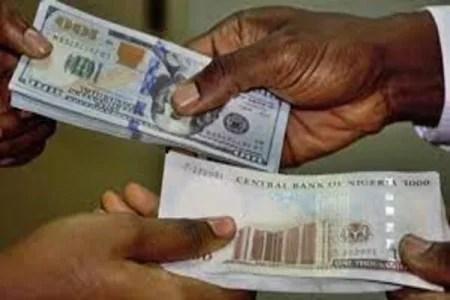
Naira plummeted to a record low of N1,348.63 against the US Dollar on Monday, signaling a 33.87% decline from the previous Friday's closing rate of N891.90. This unprecedented depreciation, witnessed at the official NAFEM market, reflects the severity of the current economic challenges facing Nigeria.
Despite efforts by the Central Bank of Nigeria (CBN) to address the backlog of verified foreign exchange transactions, including the recent release of an additional $500 million to various sectors, the Naira's downward spiral continues. This marks the sixth time the Naira has breached the N1,000/$ threshold, underscoring a persistent trend of weakness.
The recent historic low occurred despite the CBN's comprehensive strategy to improve liquidity in the Nigerian foreign exchange markets, including reforms to streamline and unify multiple exchange rates. Mrs. Hakama Sidi-Ali, the CBN's Acting Director of the Corporate Communications Department, emphasized the commitment to settling all legitimate foreign exchange backlogs within a short time frame.
The implications of the Naira's sharp decline are far-reaching. It raises concerns about its impact on inflation, household budgets, and the overall economy. Businesses, both large and small, face challenges such as increased production costs and potential profitability issues.
Despite an intraday high of N1414.94/$1 and an intraday low of N701/$1, showcasing a wide spread of N713.94/$1, the official NAFEM window reported a 36.33% increase in forex turnover at the close of trading, reaching $64.29 million.
However, the situation is grimmer at the parallel forex market, where the Naira depreciated by 2.76%, quoted at N1,450/$1. Peer-to-peer traders quoted around N1,466.20/$1, illustrating the challenges faced by the currency in unofficial markets.
As the CBN strives to stabilize the foreign exchange market, the Naira's current plight raises questions about its impact on investor confidence, foreign investment, and the broader economic outlook. The call for market participants to adhere to rules and promote transparency underscores the importance of a fair determination of exchange rates in these challenging times.
Source: Nairametrics




